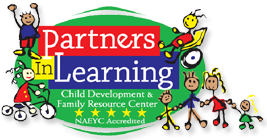I grew up in a coastal community in Northern California. Growing up, I enjoyed many wonderful family traditions. Though my parents were fiscally conservative throughout the year, Christmas was always opulent in our home, as documented in my father’s home movies. My Aunt Sam was in charge of Easter celebrations. She enthusiastically organized lavish feasts and annual Easter egg hunts, a tradition I have assumed with my own family. Though I continue to maintain many of my childhood family traditions, over the years we have added new ones. During the Christmas of 1989, my husband and three children found ourselves living three- thousand miles from our childhood homes. It was just the five of us that year; no extended family. In an issue of Good Housekeeping Magazine, I found recipes for a Charles Dickens Christmas dinner that included rib roast, Yorkshire pudding and carrot soufflé, and this became a new tradition, one that started on a snowy island in Alaska, that our family still maintains today here in North Carolina.
Family traditions might include Sunday dinners, pizza and movie night, annual vacations and camping trips, nightly devotions and nightly story time. These traditions help promote a sense of security and closeness within families. In our turbulent world today, feeling secure and valued within a family can make all the difference in a child’s life.
Recently, I had a conversation with a friend about family traditions. She told me that on the second Saturday in December, she and her family decorate their Christmas tree. After the tree is decorated, the family spreads a blanket on the floor next to it where they sit and enjoy a dinner of fondue. Last Christmas her son, now in the Marines, drove three hours in stormy weather to join his family in this simple, yet long held family tradition.
Family traditions help to form the core of our social, emotional and psychological foundation. They create many of our fondest lifelong memories. Do you have some unique family traditions? Please share them with us.
Katherine Generaux, Community Inclusion Specialist
























